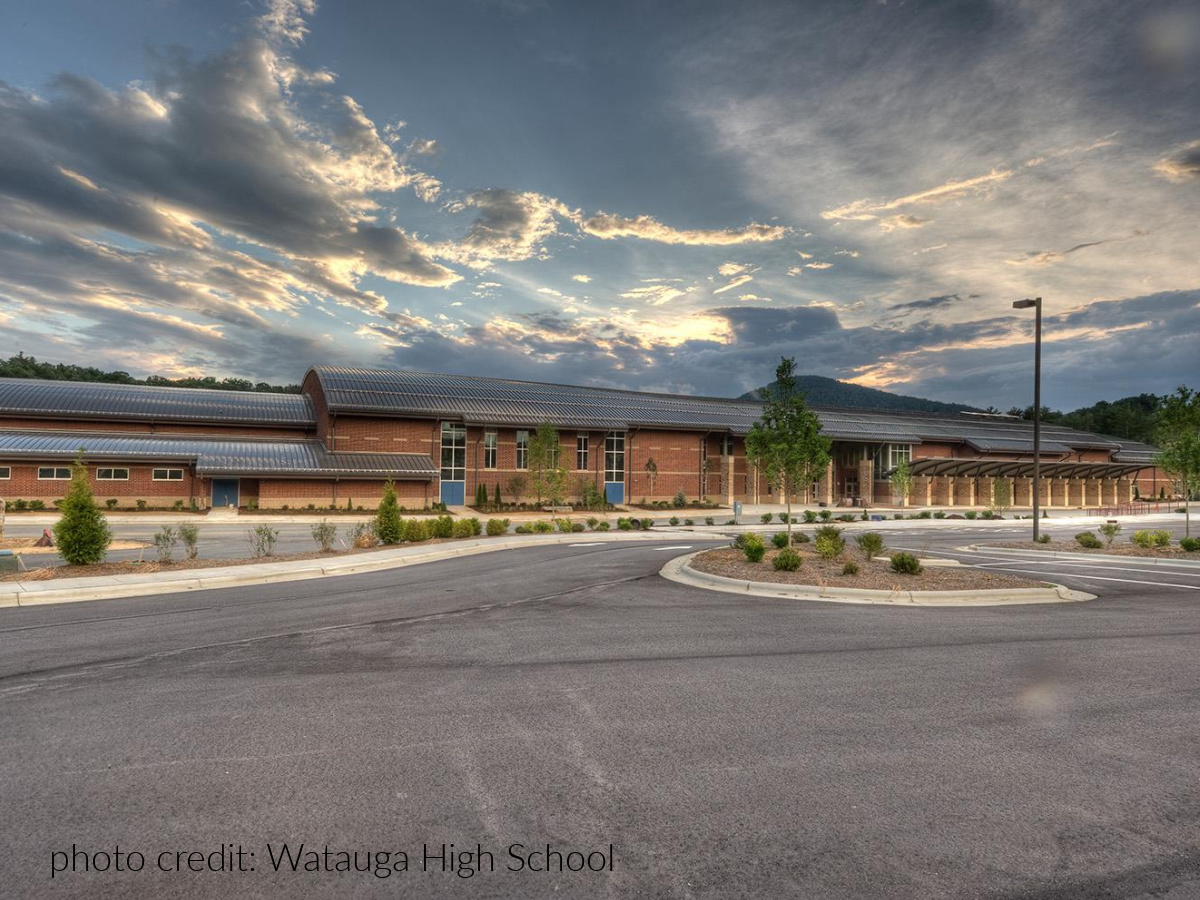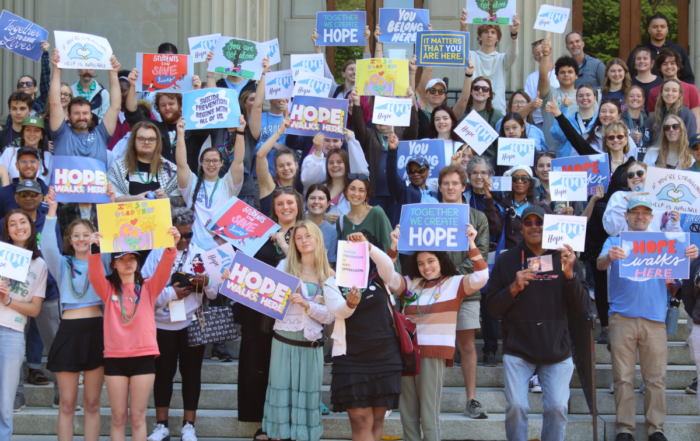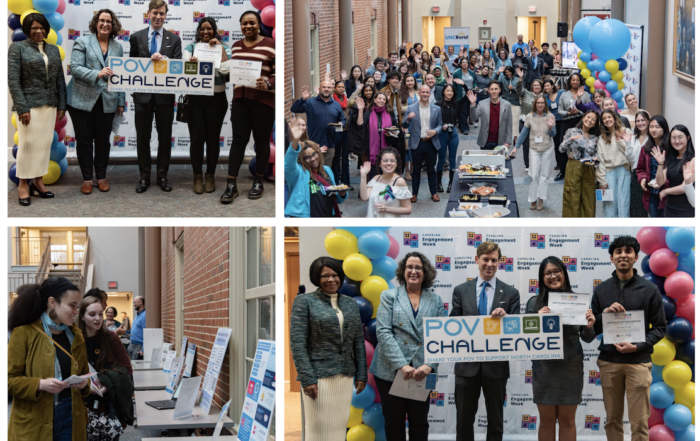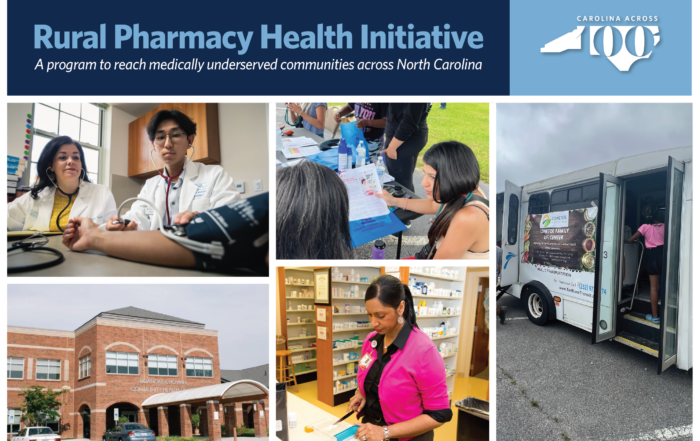Children / Child Welfare
Prioritizing Mental Health: Efforts to Support Youth in Western North Carolina
January 12, 2022

According to a recent survey from UNC-Chapel Hill’s Carolina Across 100 initiative, two of the top issues that worsened during the pandemic were education (24%) and mental health (17%). These issues are complex and connected. Youth mental health, especially in rural areas, has worsened due to pressures that existed before the pandemic and the pressures of learning loss that are surfacing over the course of the COVID-19 pandemic.
Establishing Partnerships
Navigating life during the COVID-19 pandemic continues to be challenging for nearly everyone. Many families with children have faced additional struggles related to school closures and changes to childcare accessibility, both of which have logistical and emotional impacts. For students, navigating a return to in-person classes after more than a year of remote learning has compounding effects. This is why mental health professionals and educators in Western North Carolina have established partnerships to counsel students who struggle with anxiety, depression, substance abuse, ADHD, and pressures of learning loss. Such an effort is especially important in rural areas like Western North Carolina where there are often additional obstacles to accessing counseling services for youth. According to Dr. Kurt Michael, the Stanley R. Aeschleman Distinguished Professor of Psychology at Appalachian State University, there is a shortage of mental health providers in some rural areas and a closer familiarity among rural residents can lead to confidentiality issues. One organization addressing these unique challenges for rural communities and meeting the mental health needs of young students in Western North Carolina is the Assessment, Support, and Counseling (ASC) Center.
Dr. Michael developed ASC in 2006. ASC is a university–schools partnership that oversees the provision of mental health services to students by graduate trainees under the supervision of licensed faculty in Clinical Psychology, Social Work, and Marriage and Family Therapy. ASC operates across three Local Education Agencies (LEAs) in western North Carolina, including Watauga, Ashe, and Alleghany Counties. The Alleghany ASC Center is led by Dr. JP Jameson, a professor at Appalachian State University. The clinicians serve students with a variety of issues ranging from ADHD, depression, anxiety, to suicidality. Not only does ASC provide counseling to students, but it is also a workforce development initiative that trains doctoral students in clinical psychology to serve as permanent health care providers in rural schools.
Youth mental health challenges were prevalent before COVID, according to Dr. Michael. Anxiety, depression, substance abuse, conduct issues, and suicidality are among longstanding issues in the youth community. “The pandemic has further exposed some of these challenges along with some serious disparities in access to care. And, as much as the recent press and additional support made available during the pandemic are welcomed with open arms, I fear that once the acute phase of pandemic subsides, our capacity to serve these youth will fall back to pre-pandemic levels. These disparities have been so stark and revealing, we need to increase our capacity to address these issues permanently even after the health situation in the world begins to improve.”
Lessening the Burden
But, the pressures of remote learning and coming back to school exacerbate underlying mental health issues for young students. “Failure rates have never been this high,” said Dr. Michael. “When students came out of remote learning, they had to contend with ongoing pressures of the pandemic and catching up on academics.” ASC has started to use academic coaching to support students through transitioning back to in-person classes. Academic coaching, a practice typically for students with ADHD, is useful for students struggling with the impacts of learning loss during this crisis. “We want to lessen the burden for students and to steer students toward getting the accommodation they need to support learning.”
“Unfortunately, the social and emotional health of our youth typically goes to the back burner in times of crisis. Some of the gaps that were exposed are going to get bigger like access to education and higher education. We’ve got to prepare for a post-COVID life that’s basically permanent. That’s unsettling, but I can’t think of another answer. This is going to be the new normal.”
Building partnerships that benefit young people has been successful in Western North Carolina, and Dr. Michael hopes to see communities build more of these kinds of programs. “The key skills are facetime and listening before you say anything,” said Dr. Michael. “ Be willing to respond in creative ways to what they say.”
UNC-Chapel Hill’s Carolina Across 100 initiative is a five-year program charged by Chancellor Kevin Guskiewicz which will partner with communities in all 100 North Carolina counties to aid in pandemic recovery and help build resiliency. Learn more about the issues impacting our state and the people working to alleviate those issues by visiting our Stories page.






